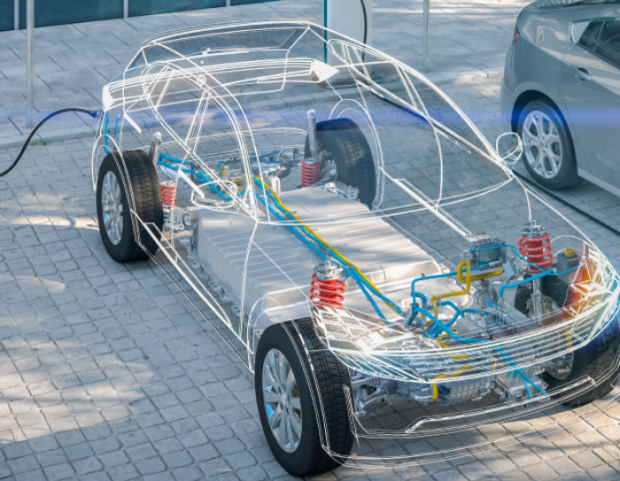Seoul pushes for battery recycling to bypass US bill
Materials extracted from waste batteries made of Chinese minerals are unlikely to be subject to the Inflation Reduction Act
By Sep 16, 2022 (Gmt+09:00)
LG Chem to sell water filter business to Glenwood PE for $692 million


Kyobo Life poised to buy Japan’s SBI Group-owned savings bank


KT&G eyes overseas M&A after rejecting activist fund's offer


StockX in merger talks with Naver’s online reseller Kream


Mirae Asset to be named Korea Post’s core real estate fund operator



South Korea will step up policy efforts to promote battery recycling, which might help the country get around the new US bill aimed at keeping electric vehicle battery makers from using materials sourced from its unfriendly trading partners such as China.
The government is drawing up a package of measures, including financial aid for the reuse of batteries and policy support for research and development of the relevant technology, according to government officials on Friday.
It is aiming to introduce the relevant law in the first half of next year, led by the Ministry of Trade, Industry and Energy and the Ministry of Economy and Finance.
Particularly, the upcoming measures will make it mandatory for battery makers to use certain portions of minerals such as nickel, cobalt and copper extracted from waste batteries.
That means that EVs powered by made-in-Korea recycled batteries would be eligible for the US tax credits to be granted to EVs, even though the batteries they recycle contain Chinese minerals.
South Korean battery makers are heavily reliant on Chinese raw materials such as graphite, manganese, lithium and cobalt, key ingredients of EV batteries.
US President Biden signed the Inflation Reduction Act into law last month. The bill includes a $7,500 tax credit for EVs using portions of critical battery materials not extracted, processed and recycled by a foreign entity of concern.
To qualify for the credits, EV companies must source at least half of their battery components in the US or its foreign trade partners, including South Korea, starting in 2024. The proportion will increase to 40% by 2023 and 80% by 2027.
To facilitate battery recycling, South Korea recently loosened regulations on the collection and disposal of used batteries. Under the revised rules, scrap batteries are now classified as recyclable resources, instead of waste materials.
The European Union is preparing new laws concerning the recycling of cobalt, lithium and nickel extracted from waste batteries, which South Korea is considering benchmarking.
But Seoul may not adopt strict guidelines for now, considering its relatively low penetration of EVs and uncertainty regarding its economic benefits.
Separate from the policy moves, South Korea’s EV battery makers and automobile companies will take voluntary efforts to collect and recycle waste batteries in coordination with the government.
To that end, LG Energy Solution Ltd., Samsung SDI Co. and Hyundai Motor Co. will participate in a so-called “battery alliance” to be launched next month, alongside other domestic manufacturers.
Write to Zi-Hoon Lee and Hyung-Kyu Kim at lizi@hankyung.com
Yeonhee Kim edited this article.
-
 BatteriesSouth Korea bans L&F from building a battery material plant in US
BatteriesSouth Korea bans L&F from building a battery material plant in USSep 15, 2022 (Gmt+09:00)
2 Min read -
 Waste managementSK Ecoplant bets on US battery recycling firm Ascend Elements
Waste managementSK Ecoplant bets on US battery recycling firm Ascend ElementsSep 01, 2022 (Gmt+09:00)
1 Min read -

-
 Electric vehiclesKorea may file complaint with WTO against US' Inflation Reduction Act
Electric vehiclesKorea may file complaint with WTO against US' Inflation Reduction ActAug 22, 2022 (Gmt+09:00)
3 Min read -
 Electric vehiclesKorean EV, battery makers to benefit from US inflation bill
Electric vehiclesKorean EV, battery makers to benefit from US inflation billAug 01, 2022 (Gmt+09:00)
3 Min read -
 BatteriesKorea battery makers at risk from reliance on China materials
BatteriesKorea battery makers at risk from reliance on China materialsFeb 16, 2022 (Gmt+09:00)
2 Min read -
 BatteriesKorea battery makers suffer under growing China dominance
BatteriesKorea battery makers suffer under growing China dominanceDec 24, 2021 (Gmt+09:00)
3 Min read


